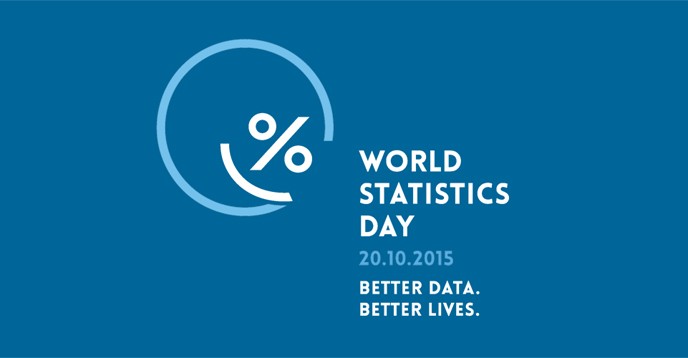world_statistics_day_2015_688px.jpg

Message from Irina Bokova, Director-General of UNESCO
The adoption of the 17 new sustainable development goals constituting the United Nations agenda for 2030 represents hope and responsibility for the future of the world. The implementation and monitoring of that historic development agenda calls for the production and sharing of reliable, comparable, statistical data at the global level. The fact that effective public policies cannot exist without robust statistical data poses an unprecedented challenge for the entire world.
UNESCO’s role, through its Institute for Statistics (UIS), is precisely to enhance national capacities to produce indicators and criteria likely to improve the monitoring of progress, identification of emergencies and awareness of the shortcomings and inequalities that hinder development. The 17 new sustainable development goals and their 169 targets call for the development of hundreds of indicators for the more accurate measurement of education quality, gender inequalities and a particular economic sector’s contribution to poverty eradication.
This significant challenge is a stroke of good fortune and an opportunity to raise the level of global expertise in the field of statistics by training engineers, mathematicians and information and computer graphics specialists so that they learn to produce, actively share and handle statistical data. Money is but a tiny part of the equation. The quality of statistical data depends first and foremost on the training and commitment of the men and women who produce them at the local and national levels. This world day is an opportunity to pay tribute to them, for no global monitoring is possible without them. From Benin to Mongolia to Sweden, the UIS is working with a network of enthusiastic and determined national statisticians to build the data needed to improve people’s lives in their own countries and beyond. Thanks to their commitment, UNESCO has been able to build the most complete and robust education database in the world while opening up new paths for contemporary statistics in advanced fields, such as innovation and cultural employment. It must continue.
Statistics encapsulates the power of knowledge to better understand the world and to foster change for justice. This day is an opportunity to restate that fact and recall that statistics is never a matter of simply “gathering” pre-existing data: it is a construct that plays a part in creating the reality that it reveals. It brings to light previously unnoticed inequalities, fostering social awareness and helping us to find our bearings in terms of how we look at the world. Through the strength of a number or a well-illustrated graphic, statistics are worth more than a lengthy speech. They are a public good that every citizen must be able to understand and every State must be able to make the most of, to the advantage of all.
Better data. Better lives
As we celebrate World Statistics Day, the demand for internationally comparable data is reaching new heights with the adoption of the Sustainable Development Goals (SDGs). The challenge lies in defining a measurement agenda to help ensure that the promises of the SDGs become reality by 2030.
The UIS is helping to pave the way forward by providing the technical advice needed to define and produce the indicators and benchmarks that countries can use to monitor progress globally while improving their policies. The stakes are high given the ambitious nature of the SDGs, which will require at least 100-120 indicators to monitor the 17 goals and 169 targets as well as more in-depth indicators for key fields, such as education.
The new indicators will require considerable investment to produce, but money is only part of the equation. Good data ultimately depend on the expertise and commitment of those producing them, and this is not in short supply. From Mongolia to Benin and Sweden, the UIS works with a network of national statisticians devoted to producing the data needed to make a difference in the lives of people in their countries and beyond (read more).

